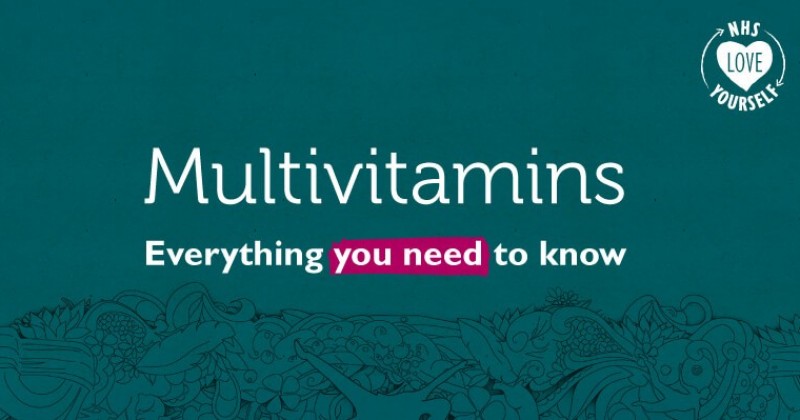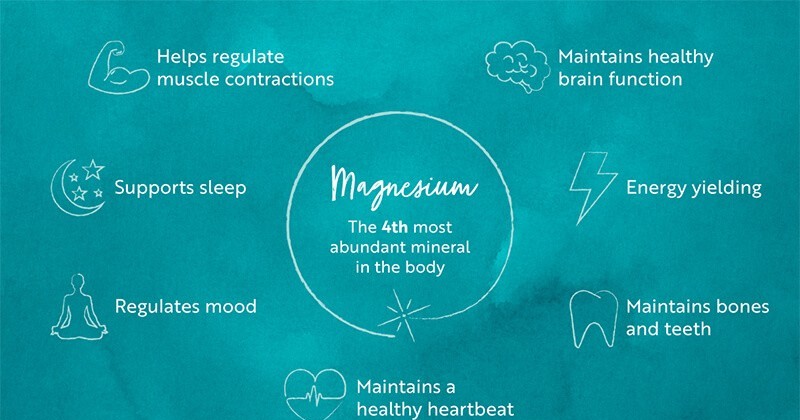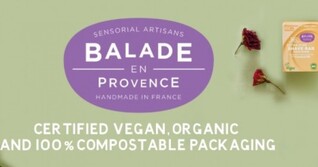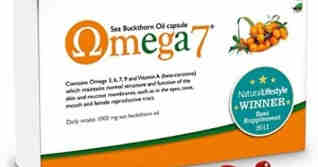
24 Jun 2020
Multi-Vitamins Compared
Comparing multivitamins can be tricky. This article asks, and answers, some of the key questions.
Why take a multivitamin?
Numerous studies have indicated that even the levels of vitamins and minerals in a balanced diet are declining due to intensive farming and soil depletion. Government surveys have identified the following groups of people as being at particular risk from low vitamin and mineral intakes: highly active people, menstruating women, vegetarians and vegans, the elderly, slimmers, pregnant and breast-feeding women, smokers, drinkers and faddy eaters.
Multivitamin capsules vs tablets.
Did you know that 50% of a tablet is made up of glues, known as binders, to hold the tablet together? For most people this is just an irritating fact, but for people who are hyper allergenic, this can be a real issue. Would you add magnesium stearate, stearic acid, shellac, talc or colourings to your meal, in the way you’d sprinkle over salt or pepper? Vegetarian capsules are preferable to aid in maximum absorption. There isn’t a tablet on the market that can perform as well as a capsule. Tablets are manufactured through a compression method, incorporating binders. This compression can lead to ‘bed-pan bullets’ where the tablet passes through the digestive system undigested. This is especially likely for those over the age of 50 where the digestion is not as functional as it was in teenage years.
What about chewable multivitamins?
Chewable multivitamins, although attractive and popular, invariably include sugar or artificial sweeteners. Vitamins do not generally taste very pleasant in their pure state, and for a chewable or fizzy tablet, a sweet taste will need to be added. The same is true of the jelly-type vitamin supplements, which will often also include non-vegetarian/vegan ingredients such as gelatine. There will also likely be artificial colourings in these products. These chewable products are usually targeted at children or the mass-market, and tend to have very low potency ingredients, making them very poor value for money.
Low potency or high potency?
Let’s look at the RDAs (recommended daily allowances). These were created to ensure that the population does not suffer from deficiency diseases such as beri beri, rickets or scurvy. The RDAs however, do not reach the requirement for optimum health. A typical RDA, such as for vitamin C is 80mg for an adult. This will ensure that the average individual does not exhibit signs of scurvy. However, studies show that a requirement of one gram (1000mg) per day is appropriate to maintain a healthy immune system and around three grams per day can assist in blood sugar regulation in conditions such as neuropathy and retinopathy. Ask for advice in your local independent health food store.
Are multivitamins usually vegetarian or vegan?
Some vitamins and minerals can be sourced from both animal and plant source. Vegan multivitamins are now available. A potential area of difficulty can be with vitamin D which can be sourced from sheep wool or from certain plants such as lichen. Look for vitamin D2 (ergocalciferol) or a D3 that specifically states that it is from vegan source. Coatings such as shellac and certain colourings found commonly in mass-market brands can be from animal derivatives. You probably know to avoid softgels as these are usually made from gelatine. Gelatine (or gelatin) is a mixture of peptides and proteins produced by partial hydrolysis of collagen extracted from the skin, boiled crushed horn, hoof and bones, connective tissues, organs and some intestines of animals such as domesticated cattle, chicken, pigs, and horses. Food-grade gelatine is produced mainly from two raw materials, beef skin and pork hide. Photographic and pharmaceutical grades of gelatine are generally made from beef bones, although some beef bone and fish gelatine is used by the food industry.
Gelatine is often used for softgel capsules in the food supplement industry, but some companies also add it to other types of capsule or even tablets, so read the label carefully.
Can multivitamins be kosher?
Yes, some brands of multivitamins have been certified by the London Beth Din and/or the Kashrus & Medicines Information Service.
Yes, some brands of multivitamins have been certified by the London Beth Din and/or the Kashrus & Medicines Information Service.
Can vitamins be organic?
Organic is now a legally recognised term, governed by certification bodies such as the Soil Association.
Soil Association regulations cover animal and land management, through to the finished item on the shelf, and apply to foods, toiletries and cosmetics and even textiles.
In relation to plants, the Soil Association guarantees that a crop is grown without the use of artificial chemicals and sprays, protecting the environment and the public from dangerous pesticides, herbicides and other toxic chemicals.
Clearly, vitamins found in organically grown foods are, by definition, organic. Vitamins found in food supplements can be concentrates of food sources, grown on yeast, or created in a controlled environment (a laboratory) and involve specialist processes. Regardless of the source, these vitamins are utilised by the body in the same way as vitamins found in food.
Is irradiation relevant to multivitamins?
Food irradiation is a processing technique that exposes food to electron beams, X-rays or gamma rays. Food absorbs energy when it is exposed to ionising radiation. The amount of energy absorbed is called 'absorbed dose', which is measured in units called grays (Gy) or kilograys (kGy), where 1kGy = 1,000Gy. The energy absorbed by the food causes the formation of short-lived molecules known as free radicals, which kill bacteria that cause food poisoning. They can also delay fruit ripening and help stop vegetables, such as potatoes and onions, from sprouting.
Though numerous government departments around the world have said that irradiation is safe, others disagree.
According to the Organic Consumers Association “Irradiated fruits and vegetables benefit the packer and grocer, not the farmer or consumer. The consumer receives an inferior product that appears fresh, but has depleted vitamins and enzymes.”
Though vitamins and minerals are not commonly subjected to irradiation, plants often are. If your multivitamin contains other plant / herbal elements, you will need to check that these have not been irradiated.
Is there a GMO issue with multivitamins?
This is a question well-worth asking of your multivitamin supplier, as there are genetic modification issues within the natural products sector. Specifically, some years ago, the supply chain for vitamin E was contaminated with genetically modified material. Natural vitamin E is sourced from soy, wheat germ or sunflower. Unfortunately, the supply of soy was mixed with GM soy and although the processed vitamin E was certified GM-free, it was derived from GM soy. This issue has been resolved by the industry insisting on segregated crops, but it is worth asking your health food store about this issue to get a guarantee from the supplier.
Tell me about natural and synthetic vitamins?
This question comes up often in health food stores, and is a little more complex than it seems. Vitamin and mineral supplements are sourced from international suppliers, often pharmaceutical companies who specialise in extracting nutrients from fruits and vegetables or cultivated on yeast in a specialist process involving natural chemical reactions in a controlled environment. Regardless of the source, these vitamins are utilised by the body in the same way as vitamins found in food.
The term ‘natural’ when used in relation to vitamins is especially important when it comes to the fat-soluble vitamins beta carotene, A, D and E. Look for natural source, as these are better utilised by the body.
Tell me about additives in multivitamins.
The best multivitamins are made without the use of inert excipients, (binders, coatings and fillers) such as dicalcium phosphate, magnesium stearate, talc and shellac. These unnecessary additives are used to help speed manufacture but at best offer no nutritional value and at worse, can prove allergenic. Some better quality companies, such as Viridian Nutrition, include only 100% active ingredients, thereby offering better value for money.
What’s the best type of vitamin C for a multivitamin?
A good multivitamin features a low acid form of vitamin C, such as magnesium ascorbate, to help keep any acid rejection symptoms down to a minimum. Vitamin C is an important nutrient for health and is essential in the health of skin, teeth, gums, bones, cartilage, and in the maintenance of the immune system, Other excellent sources of vitamin C include Ester-C, acerola and amla, though food concentrates tend to be too ‘large’ to fit into multivitamin formulas.
Why are B-vitamins important in a multivitamin?
B vitamins have the ability to help convert food into energy, helping to reduce feelings of tiredness and fatigue. B vitamins are essential for the health of the skin, the immune system, the nervous system, vision and in the metabolism of iron.
However, the B-complex vitamins are not required in equal quantities. Rather than say 50mg or 75mg of each of the B vitamins, more scientific formulations offer ratios of the B vitamins more in line with the body’s requirements for these essential nutrients., resulting in a more balanced formula. The best products have a balance that focuses on the main anti-stress and energy nutrients such as vitamin B5.
What’s the difference between fat-soluble and water-soluble vitamins?
Water soluble vitamins such as vitamin C and B vitamins are not stored in the body and therefore must be consumed daily. These vitamins dissolve in water and are eliminated through urine. Fat soluble vitamins such as vitamin A, D, E and K are stored in the liver and fat cells and therefore pose greater risk of toxicity if consumed in very large amounts. These vitamins are absorbed with lipids in the diet.
Vitamin and mineral RDAs explained.
RDAs (Recommended Daily Allowances) were created to ensure that the population does not suffer from deficiency diseases such as beri beri, rickets or scurvy. The RDAs however, do not reach the requirement for optimum health.
A typical RDA, such as for vitamin C is 80mg for an adult. This will ensure that the average individual does not exhibit signs of scurvy. However, studies show that a requirement of one gram (1000mg) per day is appropriate to maintain a healthy immune system and around three grams per day can assist in blood sugar regulation in conditions such as neuropathy and retinopathy.
How to take a multivitamin.
Ideally, take your multivitamin in the morning with food. If your multivitamin is a two-a-day, take one at breakfast and one with lunch.
Is it ok to take a multivitamin with tea or coffee?
Best to take with water at room temperature. Leave it 15 minutes before or after a hot drink.
What time of day should I take my multi?
A good multivitamin will give you a boost, so best to take in the morning with breakfast. If your multivitamin is a two-a-day, take one at breakfast and one with lunch.
Are multivitamins important for those aged over 65?
Those aged over 65 may benefit from a specifically formulated multivitamin for this age group. Digestion tends to be less effective aged over 50 and those over 65 are more likely to be taking prescribed medication. One of the major issues as we get older, is a depletion of vitamin B12. This is because over the years, our levels of stomach acid begin to decline. Stomach acid produces a compound called ‘intrinsic factor’ which is a glycoprotein responsible for the active absorption of vitamin B12. As vitamin B12 enters the stomach, it forms a complex with a glycoprotein. This complex then leaves the stomach, and gets absorbed as it enters the intestine. This whole process is reliant upon the presence of sufficient stomach acid.
Vitamin D is the most deficient nutrient in the UK, and one of the single most important nutrients in the body. It is involved in everything from bone density to regulating certain functions within the nervous system. Vitamin D has now also been shown to be fundamental for normal cellular growth and division. As most vitamin D is produced in the skin upon contact with sunlight, depletion of this nutrient is rife in the UK, especially amongst older people who perhaps do not get out very much during the winter.
How do I choose a good multi for children?
A good diet, plenty of fresh air and exercise plus lots of love and attention will generally keep your child healthy, bright and happy. But a good diet isn’t always easy to maintain in a child and assumes that your child enjoys eating leafy green foods and oily fish on a regular basis. No-one would suggest that stuffing your child full of vitamin pills is the solution either, but a balanced diet topped up with a good quality multivitamin can give reassurance to parents that their children are avoiding any obvious nutritional deficiencies. Additionally, from time-to-time, as children suffer with occasional colds and infections, earache, stomach problems and so on, natural remedies can be recommended once a proper diagnosis has been obtained from a qualified health practitioner.
Choosing the right multi for your kids is a challenge. Cartoon shapes, blackberry flavours, syrups and powders are all on offer usually packed with sugar.
Are there multivitamins designed to help with conception?
Yes there are and the requirements for men and women do vary.
Most causes of male infertility reflect an abnormal sperm count or quality. Although it only takes one sperm to fertilise an egg, in an average ejaculate a man will eject nearly 200 million sperm. In about 90% of the cases of low sperm count, the reason is deficient sperm production. Unfortunately, in about 90% of cases, the cause for the decreased sperm formation cannot be identified and the condition is labelled ‘idiopathic oligospermia or azoospermia’. Oligospermia means a low sperm count while azoospermia is defined as a complete absence of living sperm in the semen. Possible causes of male infertility include environmental toxin exposure (e.g. smoking, xenoestrogens), nutritional deficiency, ductal obstruction, ejaculatory dysfunctions, and infections (Chlamydia being the most common serious infection) or disorders of accessory glands.
The nutrients in an ideal female fertility formula will provide antioxidant support, help stabilise glycaemic control, and help promote appropriate cellular function to encourage female fertility.
Choose fertility multi supplements which have been specifically designed to maximise the vital nutrients required to support male or female reproductive function and help optimise fertility. Ideally both partners should take the supplements at least 90 days ahead of planned conception.
How do I choose a multivitamin for pregnancy and lactation?
During pregnancy larger amounts of nutrients are required for growth and metabolism of maternal and foetal tissues and for storage in the foetus. Some of the additional need for nutrients is met by increased maternal food intake, but regardless of dietary intake, the enormous metabolic adjustments in nutrient utilisation support the use of additional supplemental nutrients.
During pregnancy larger amounts of nutrients are required for growth and metabolism of maternal and foetal tissues and for storage in the foetus. Some of the additional need for nutrients is met by increased maternal food intake, but regardless of dietary intake, the enormous metabolic adjustments in nutrient utilisation support the use of additional supplemental nutrients.
Do women have special needs when choosing a multivitamin?
Yes, women may have greater requirement for certain B vitamins and minerals such as calcium. Discuss your personal needs with the experts in your local independent health food store.
Do men have special needs when it comes to choosing a multivitamin?
Yes, men have higher requirements for most nutrients, especially zinc. Choose a multivitamin specifically formulated to support overall male health. This may include broccoli extracts, nettle, pumpkin and ginseng or other herbal ingredients to support cardio, prostate and urinary health. Discuss your personal needs with the experts in your local independent health food store.
Which multivitamins are best for sports people and athletes?
It is certainly appropriate for those involved in regular strenuous physical activities such as aerobic exercise, weight training, circuit training, body building, running and professional sporting events to add nutritional supplements. Every professional football, rugby, cycling and athletics team now has a nutritionist connected with the squad ensuring their daily nutritional needs are met. Sports nutrition has developed considerably over recent years, with specialist degree level courses.
Sports multis will include ingredients such Coenzyme Q10 and amino acids, together with good potencies of the key vitamins. Discuss your personal needs with the experts in your local independent health food store.
Does a multivitamin replace the need to a good diet?
Absolutely not. A good multivitamin offers an insurance against daily deficiencies and tops up a good, balanced diet.
Tell me about time-release multivitamins, do they work?
Timed-release vitamins are a controversial area. The theory is that we need a regular intake of vitamins and minerals throughout the day and that a specially ‘layered’ or ‘compressed’ tablet will release the nutrients gradually. The reality though is that a multivitamin is only broken down in the stomach and then the nutrients are absorbed during their time in the small intestine, so once the compressed tablet has passed through this area, the nutrients will no longer be functional. Transition time for a capsule or tablet will be identical, and for optimum release, the vessel must be digested and absorbed before it transits past the small intestine.
Are chelated minerals important in a multivitamin?
To chelate literally means ‘to claw’. A chelation agent, such as citric acid or malic acid, locks on to the mineral and helps transport it through the body into the cell where it is utilised. Citrates, malates, amino acid chelates and picolinates are some of the better absorbed presentation of minerals and these are preferred by the better supplement suppliers. These properly chelated forms of mineral offer the mineral in a highly absorbable biologically active form. Look out for iron bisglycinate, chromium picolinate and selenomethionine.
Are multivitamins safe?
Choose your multivitamins from a trustworthy and reliable health food store, where the retailer has experience and integrity. A good independent health food store will help you choose the right multivitamin for you and will invite you back to assess the effectiveness on a regular basis. Avoid unknown websites and mass-market outlets, as you will get little advice or support. Multivitamins on sale in good health food stores will be formulated by expert suppliers and manufactured in high quality manufacturing facilities.
Is it ok to take a multivitamin with prescribed medication?
Generally speaking, yes, but certain blood-thinners such as Warfarin, as well as other medications can be problematic. Always check with the health food store where you buy your multivitamin, and with your prescribing health professional before taking any food supplements with medication. Interestingly, a side-effect of certain prescribed medications can be to deplete the body of nutrients, in which case a multivitamin may be advantageous or even essential.
Is it ok to take a multivitamin every day forever?
This is like asking whether it is ok to eat food forever. Yes indeed a good multivitamin is a good habit to acquire.
Is there any reason not to take a multivitamin?
If you are on prescribed medication, please check with your GP before considering a multivitamin.
Latest Post
-

-
Nature's most versatile supplement
Pycnogenol is extracted from the bark of pine trees grown...
read more -

Celebrate Earth Day with Zero Waste Brands
Sustainable, eco-conscious and kind to our planet, these buys are...
read more -

Balade en Provence Zero Waste Organic Products
A little history about this fabulous new zero waste company. ...
read more -

-

Omega 7 - Watch the video and discover the benefits
Omega 7 is a nutritional supplement that is produced...
read more

